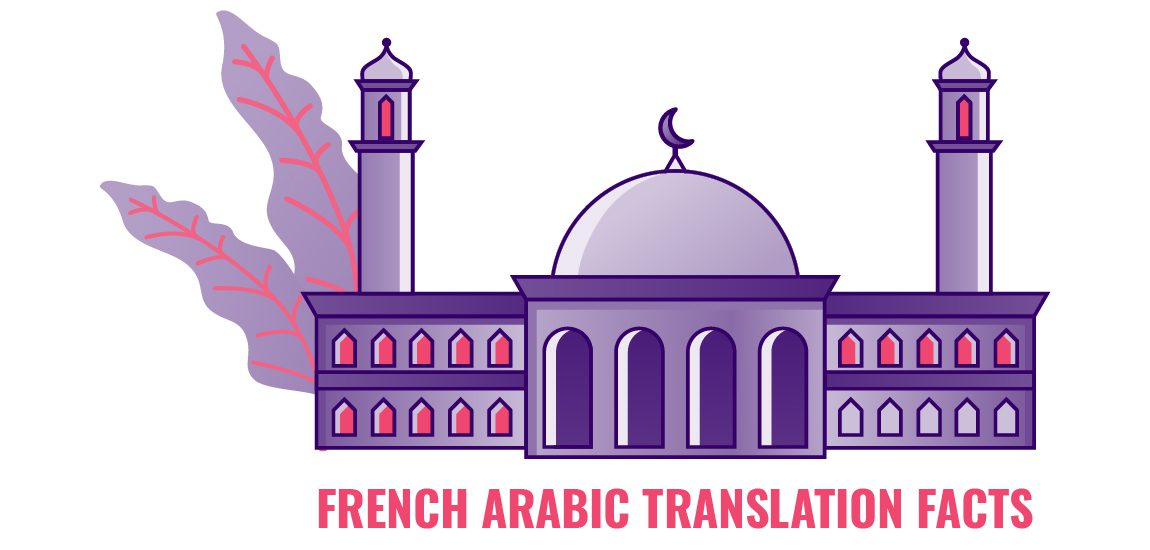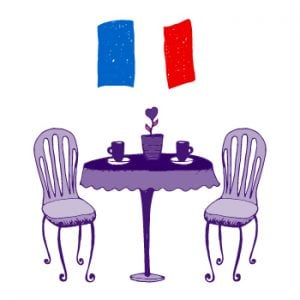
French To Arabic Translation Facts
French to Arabic Translation
Considering the fact that English language is very common and not so much a difficult language, many people can easily find their way through translating from other languages to English.
However, one question I would like to put across to you is how much do you know about the process of translating from French language to Arabic language?
Well, in case you are not sure, this article has been designed to guide you the basics you need to arm yourself with when considering translating your documents from French to Arabic. Ready for this? Pull up a couch and read on.
Arabic Language
Arabic, a Semitic language, boasts a rich cultural and linguistic heritage spoken by Arabic speakers across Arab countries. As English speakers engage with Arabic content, accurate translations become essential to bridge language barriers and facilitate a deeper understanding of the text. The nuances of Arabic dialects, prevalent in regions such as Saudi Arabia, can challenge achieving precise translations, emphasizing the importance of skilled translators who comprehend the poetic language inherent in Arabic.
The target language, in this case, English, requires meticulous attention to cultural nuances and context, ensuring that the essence of the original Arabic content, specifically Modern Standard Arabic, is preserved. With many Asian languages and diverse language structures, translating Modern Standard Arabic into English demands linguistic proficiency and cultural sensitivity to foster effective communication between English and Arabic speakers.
A translation is never word-for-word.
The translation is never a word-for-word translation. Your translator should always translate the sentence and understand the context in which it was written, not only focus on what the words mean. Machine translation engines like Google’s free service can help, but nothing will replace human assistance.
They can make up for not knowing vocabulary or having difficulty understanding the meaning of certain words by adjusting sentences or choosing synonyms with different meanings. Our French-Arabic translation search engine can help you find the best translator.

There are only about 70,000 words in the average language
French language translation is necessary for many people and groups of people around the world who need French. There are only about 70,000 words in the average major language. With so few words, a native speaker can struggle with writing and speaking fluently.
The same goes for translators who work on French texts or texts in other languages, such as Arabic. A foreign language translator will have experience translating all sorts of French texts, such as official correspondence, technical documents, oral interviews, websites, etc.
Many types of translation services are available at Language Trends, including literary translation services, document translation services and more!

Many languages use similar prefixes and suffixes.
One factor that sets French and Arabic apart as languages is the influence other languages have had on each. The Germanic invasions influenced France in the 5th century, whereas Arab culture was influenced by Iranian, Semitic, Turkic and European cultures.
One more thing that sets these two languages apart is how similar they are in their morphology, meaning the way each word changes form depending on its grammatical context. The French verb ‘faire’, for example, changes into ‘fait’ when followed by an object (which means ‘do’). In English, this would not happen, as there is only one infinitive form of a verb- do.
A further reason why these two languages are very different despite their similarities is because of the different linguistic features in each.
Grammar is more than just nouns and verbs
All you need to know about translating French to Arabic is that translators are special and do more than translate the language. They are a cultural connector, providing a bridge for people who speak different languages.
If you have specific content needs, translators can use specialized resources to access other languages that would otherwise be inaccessible without additional effort. The more advanced translators have access to and the ability to translate and create translated content in as many target languages as needed.
This is where a business may seek translation for branding materials, advertisements, marketing content, and more. There is also a database of translators available with searchable criteria that allow companies looking for linguists with particular expertise such in engineering, journalism, law etc.
Some languages have different grammar rules than English
Arabic is spoken in many different countries and has a rich, largely unexplored culture. This can translate into a complex process because the language’s grammar rules differ from English. Know the list of the most common English words.
Here are 5 top facts about translating from French to Arabic for your edification.
Translating from French to Arabic involves a set of unique challenges and requires skilled English translators who specialize in diverse language pairs and combinations. With its rich linguistic features and influence from Islamic culture, the Arabic construct demands a thorough understanding of religious texts and cultural nuances.
An Arabic translation project encompasses a wide range of subjects, from literature to technical content, necessitating expertise in localization services to adapt the material effectively. Regional dialects within Arabic-speaking countries further add complexity, highlighting the need for translators well-versed in the intricacies of Arabic culture.
The Arabic script, with its origins deeply rooted in history, carries significance beyond mere linguistic representation, making it crucial for English translators to navigate the cultural and linguistic intricacies of translating from French to Arabic.
1) French is not an official language of the Arab world, but there are many more speakers of it than one might expect.
2) Technically speaking, the word arab refers to any native speaker of the language, but in most cases, it’s used when referencing an inhabitant of the Middle East and North Africa region who shares its common faith and culture.
3) The Arabic language includes over 100 million people across all dialects.
4) Arabs speak what’s called Modern Standard Arabic or MSA, similar to other modern European languages like French and Spanish, with some exceptions between their respective cultures.
5) French is considered an official language in Tunisia, while Algeria recognizes both French and Arabic as co-official languages under their constitution, amended after independence from France.


The best translators can speak their source language fluently
French is the official language of 29 countries. French translation into Arabic is sometimes very difficult, and this is because the best translators can speak their source language fluently. For example, if someone has studied Spanish for four years in high school and one year at college, they would be considered fluent in Spanish.
This can also be referred to as being native-level in a language. It’s worth noting that translating French into Latin or Romanian would also be challenging for someone who does not know these languages.
This is because there are not many resources available on these two languages that are accessible enough for an individual who doesn’t know the vocabulary or grammar of these languages. The best translators, proficient in their source language, ensure professional translation quality, whether working independently or as part of a translation company, delivering superior results compared to online translation services.
The best translators can speak their source language fluently, offering a nuanced understanding of the original language’s intricacies. This is particularly crucial when catering to a target audience in the English language. Whether dealing with legal documents, online content, or materials for international businesses, professional translators adept in both the source and target languages play a pivotal role in accurate and effective communication.
Expert translators pay attention to details, such as capital letters and cultural nuances, ensuring the translated content resonates appropriately with the audience. In the language industry, where popular languages like English are prominent, translators’ proficiency serves as a crucial window pane for successful cross-cultural communication. Utilizing translation tools to enhance efficiency, these language experts contribute significantly to the seamless exchange of information across linguistic boundaries.
Good translation takes time.
When dealing with a large number of words, translators should allow for time and ensure that the translation is read over before publishing it. It’s no use publishing hastily translated content that makes no sense because it’s been done in a rush, and your customers are more likely to share those errors than things that make sense.
When translating between languages, there are always linguistic difficulties and differences, but when you translate French into Arabic, additional issues arise. Unlike English, Arabic does not have a letter for every sound, so some letters have to be used differently depending on the word they’re being used with.
There are also many different dialects, which means that one person might say ma while another says man or the, meaning the same thing can be spelled differently and spoken differently.
Finally, because most people speak less formal Arabic at home and more formal Arabic at work or school (there are only two dialects), they sometimes use phrases that sound strange if translated literally without understanding what they mean, such as What is this? Instead of asking What is this? (In this case, they don’t want someone else telling them what something is).
FAQ’S
How many countries speak Arabic as their official language?
Arabic is the native language of 220 million people, most of whom live in the Middle East and North Africa.
Which is the best French to Arabic translator?
The best French-Arabic translation service is often determined by the customer’s needs and budget. For example, if you’re looking for a one-time document translation, then a standalone French-Arabic online translator will suffice.
Can any translator translate French to Arabic?
Since French is the official language of France, it’s only natural that a translator would know how to speak it.


Sorry, the comment form is closed at this time.